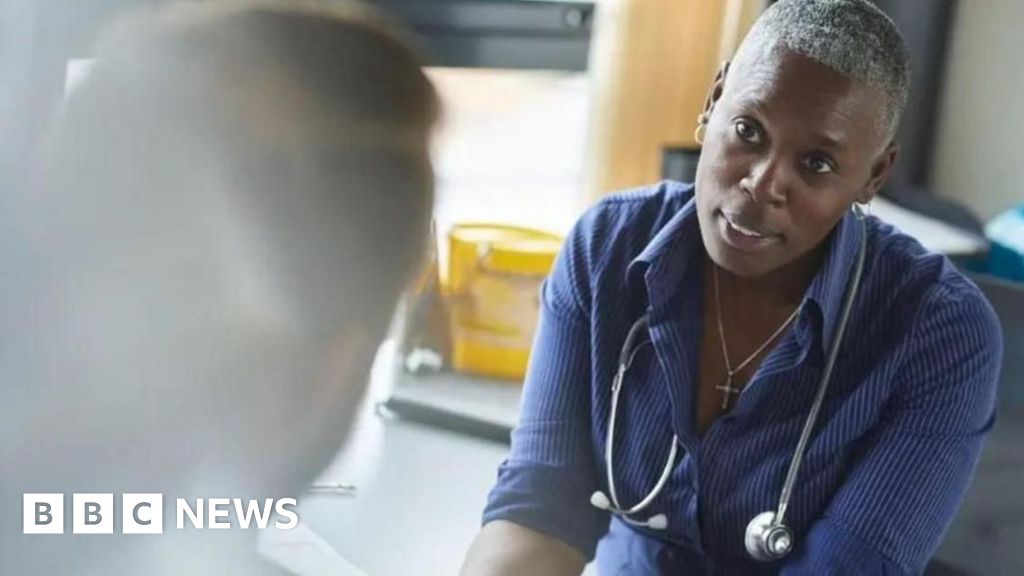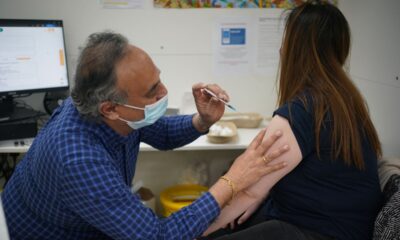Health
First-Year Doctors Vote to Strike Amid Job Shortages in England

First-year resident doctors in England have overwhelmingly voted in favor of strike action due to a significant shortage of training positions. The vote, conducted by the British Medical Association (BMA), revealed that around 97% of participants supported the move, with a turnout of 65%. This decision comes as thousands of newly qualified doctors find themselves without training placements as they transition from year two to year three.
The current situation is stark. This year, 10,000 jobs were available for approximately 30,000 candidates, which includes some doctors trained abroad. The BMA has been in discussions with the government regarding this issue since a pay strike in July 2023. However, the formal mandate for strike action allows for a more direct approach to advocate for better job security and training opportunities.
Dr. Jack Fletcher, chair of the BMA’s resident doctors committee, expressed the frustration among doctors regarding their precarious career paths, especially in a context where the demand for medical professionals is high. He stated, “Doctors have spoken clearly – they won’t accept that they face a career of insecurity at a time when the demand for doctors is huge.”
The numbers highlight a troubling trend: more than 10,000 doctors applied for psychiatry training this year, yet fewer than 500 were offered positions. The situation is exacerbated in general practice, where five applicants compete for each available training post, coinciding with rising patient demand for appointments. Dr. Fletcher criticized the government’s current pledge to increase training places by just 1,000 as insufficient.
The BMA argues that the dual issues of pay and job availability must be addressed together to ensure a sustainable medical workforce. Dr. Fletcher noted, “Patients need doctors to have jobs. Doctors need to know they will have jobs. And they need to know they will be paid what they’re worth.”
While the Health Secretary, Wes Streeting, has stated he will not negotiate on pay, he has focused discussions on working conditions, exam fees, and career progression. Over the past two years, resident doctors received a 22% pay increase, with an additional 5.4% rise this year. Despite these increases, the BMA emphasizes that pay remains 20% lower than in 2008 when adjusted for inflation.
As the strike vote unfolds, the pressures on the medical workforce in England continue to mount. With patient care at stake and thousands of doctors unable to secure their futures, the BMA is pushing for immediate and comprehensive reform to address these critical issues. The outcome of this situation will be closely monitored as both sides prepare for further discussions.
-

 Entertainment1 month ago
Entertainment1 month agoAnn Ming Reflects on ITV’s ‘I Fought the Law’ Drama
-

 Entertainment2 months ago
Entertainment2 months agoKate Garraway Sells £2 Million Home Amid Financial Struggles
-

 Health1 month ago
Health1 month agoKatie Price Faces New Health Concerns After Cancer Symptoms Resurface
-

 Entertainment2 months ago
Entertainment2 months agoKim Cattrall Posts Cryptic Message After HBO’s Sequel Cancellation
-

 Entertainment1 month ago
Entertainment1 month agoWhere is Tinder Swindler Simon Leviev? Latest Updates Revealed
-

 Entertainment2 months ago
Entertainment2 months agoMasterChef Faces Turmoil as Tom Kerridge Withdraws from Hosting Role
-

 Entertainment3 months ago
Entertainment3 months agoSpeculation Surrounds Home and Away as Cast Departures Mount
-

 World1 month ago
World1 month agoCole Palmer’s Mysterious Message to Kobbie Mainoo Sparks Speculation
-

 Entertainment1 month ago
Entertainment1 month agoITV’s I Fought the Law: Unraveling the True Story Behind the Drama
-

 Entertainment3 weeks ago
Entertainment3 weeks agoCaz Crowned Winner of The Great British Sewing Bee, Overjoyed by Triumph
-

 Entertainment2 months ago
Entertainment2 months agoAldi Launches Cozy Autumn Fragrance Range Ahead of Halloween
-

 Entertainment2 months ago
Entertainment2 months agoMarkiplier Addresses AI Controversy During Livestream Response





















